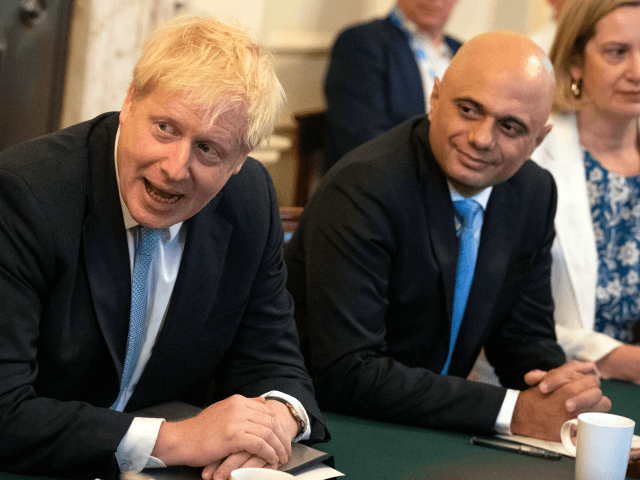Boris Johnson has confirmed he is scrapping the Conservative Party’s long-standing pledge to reduce net immigration “from the hundreds of thousands to the tens of thousands” — a possible red flag for many supporters.
While European Union loyalists and left-liberals are bemoaning Boris Johnson’s new administration as the most “hard-right” in over thirty years — and many populist-leaning conservatives have pinned their hopes on him as “Britain Trump” — the former Mayor of London is politically and socially liberal on most issues, including immigration.
Indeed, far from being a hardliner on borders, the new prime minister has pushed policies such as amnesty for illegal immigrants for years, both as London mayor and Foreign and Commonwealth Secretary, and though his pledge to introduce an “Australian-style points-based system” has been welcomed by many conservative voters, their inference that this system would be used to reduce immigration may prove to be baseless — given he has now officially dropped his predecessors’ pledge to bring the net influx below 100,000, as he is not interested in a “numbers game”.
“No-one believes more strongly than me in the benefits of migration to our country,” Johnson told MPs in his first appearance in the House of Commons as Prime Minister.
“But I am clear that our immigration system must change. For years, politicians have promised the public an Australian-style points-based system, and today I will actually deliver on those promises: I will ask the Migration Advisory Committee to conduct a review of that system as the first step in a radical rewriting of our immigration system,” he said.
“I am convinced that we can produce a system that the British public can have confidence in.”
The statement may have sounded positive enough to a public largely sceptical of mass migration — but the Prime Minister’s spokesman later clarified that, as groups like Migration Watch UK had feared, this points-based system could actually be used to increase rather than reduce overall migration flows.
“His view is that we need to introduce an Australian points-based system that allows us to take back control of our borders,” the spokesman said.
“He is determined to deliver it, which is why he has commissioned MAC (the Migration Advisory Committee) to carry out the work to get that system.
“He said in the campaign he wasn’t interested in a numbers game.”
As a European Union member-state, the United Kingdom has no meaningful powers to control immigration from the bloc’s other 27 member-states, being subject to its Free Movement of People regime.
However, while Brussels does interfere with the country’s ability to tackle illegal immigration to an extent, non-EU immigration remains on the whole more or less within national control — but has hit a 15-year high of 340,000 gross, 261,000 net, despite the “tens of thousands” pledge,
Former Chancellor of the Exchequer George Osborne may have given some indication as to why the pledge has not met in 2017 when he boasted that, privately, senior Tories never supported it, and Johnson’s decision to formally discard it may signal that he is no longer willing to keep up the pretence that his party has any serious intention of reducing immigration.
Migration Watch UK chairman Alp Mehmet told Breitbart London he was “pleased the PM says he wants to tackle immigration with a ‘radical’ reform of the system,” but added that he “cannot have his cake and eat it.”
“Highly-skilled migration is valuable and necessary but the public will have no confidence in a system that has no limits while 30 million adults want to see immigration reduced,” he warned.

COMMENTS
Please let us know if you're having issues with commenting.